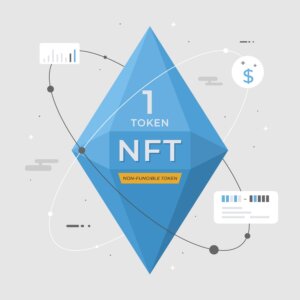Franchises are often seen as golden opportunities for investors and entrepreneurs. They offer a unique blend of lower risk and higher profitability compared to starting a new business from scratch. But what makes a franchise genuinely profitable?
It’s about more than just strong brand recognition. It involves understanding key factors such as operational efficiency, market demand, and financial metrics like revenue and ROI. A well-established franchise with a proven business model can attract significant investor interest thanks to its track record of success and comprehensive support systems.
This article will explore why certain franchises stand out as the most profitable, highlight the essential elements that drive their success, and offer tips for evaluating these lucrative opportunities.
What Makes a Franchise Profitable?
Discover the key factors driving franchise profitability, including cost management, fees, location, and support.
- Weighing Costs vs. Profits: Balance the initial investment against expected returns. High startup costs may be worthwhile if the franchise generates significant revenue. Ensure that potential profits justify the investment.
- Understanding Franchise Fees and Royalties: Franchise fees and ongoing royalties can impact profitability. These costs must be factored into your financial plans to assess your bottom line accurately.
- The Power of Location and Market Demand: A prime location and strong market demand are crucial. Choose a site with high foot traffic and align with market trends to boost your franchise’s revenue potential.
- Support and Training: Practical support and training from the franchisor can enhance profitability. Comprehensive training and ongoing assistance help manage the franchise efficiently and overcome challenges.
Focusing on these factors can help you better understand what makes a franchise profitable and make informed investment decisions.
Top Earning Franchises Right Now
Are you curious about which franchises are making waves with their impressive profits? Dive into how McDonald’s and 7-Eleven survive and thrive in today’s market, setting the standard for financial success.
McDonald’s: The Icon of Fast Food Profitability
McDonald’s excels with its vast global presence, iconic brand, and efficient operations, making it a top investment choice with impressive financial results.
- Why It’s a Top Performer: McDonald’s stands out due to its extensive global presence, strong brand recognition, and highly efficient operational model. These factors combine to make it a top choice for investors seeking stable, high returns.
- Key Success Stats: With thousands of locations worldwide and consistently substantial revenue, McDonald’s exemplifies success in the fast food industry, showcasing impressive financial performance.
7-Eleven: Convenience Store Success Story
7-Eleven thrives due to its prime locations, wide product range, and adaptable model, showcasing strong profitability and resilience in the convenience store market.
- What Makes It a Cash Cow: 7-Eleven’s profitability stems from its strategic location in high-traffic areas, a wide range of products, and a robust business model that adapts to changing consumer needs.
- Notable Financial Insights: With a vast network of stores and strong sales figures, 7-Eleven thrives, demonstrating significant financial success and resilience in the convenience store sector.
Other High-Profits Contenders
Beyond the giants like McDonald’s and 7-Eleven, several other franchises shine with impressive profitability. Subway, Dunkin’, RE/MAX, and Planet Fitness each leverage unique strengths from global reach and brand loyalty to strategic business models to achieve remarkable financial success and standout performance in their respective markets.
Subway: A Global Sandwich Giant
Known for its customizable sandwiches and global reach, Subway thrives by offering fresh ingredients and various options.
- Success Factors: Subway’s profitability is fueled by its widespread appeal, customizable menu, and global franchise network. Its focus on fresh ingredients and healthy options helps it attract a diverse customer base.
- Financial Highlights: With thousands of locations worldwide, Subway’s solid economic performance underscores its success in the competitive sandwich market.
Dunkin’: Coffee and Donuts with Big Returns
Specializing in coffee and donuts, Dunkin’ attracts loyal customers with its quick service and strong brand, leading to impressive profits.
- Why Dunkin’ Thrives: Dunkin’ excels with its focus on coffee and donuts, quick service, and widespread brand recognition. Its loyal customer base and efficient operations drive its impressive profitability.
- Profit Metrics: Dunkin’s financial success is reflected in its strong sales figures and substantial revenue, which make it a leader in the quick-service coffee sector.
RE/MAX: Leading the Real Estate Market
A top player in real estate, RE/MAX drives profitability through its strong brand, extensive network, and high commission structure.
- Franchise Benefits: RE/MAX stands out in real estate with its strong brand reputation, extensive network, and high commission potential. Its business model attracts top agents and drives high profitability.
- Financial Overview: Notable statistics highlight RE/MAX’s leading real estate market position, impressive earnings, and a robust network of successful agents.
Planet Fitness: A Fitness Franchise Powerhouse
With its affordable memberships and welcoming atmosphere, Planet Fitness attracts a broad audience, leading to significant growth and profitability.
- Growth and Profitability: Planet Fitness’s success is driven by its low-cost membership model and widespread appeal. Its focus on affordability and a non-intimidating atmosphere attracts a broad range of fitness enthusiasts.
- Success Metrics: Key financial details show Planet Fitness’s rapid growth and strong profitability, cementing its place as a top performer in the fitness industry.
Trends Shaping Franchise Profitability
Discover the latest trends influencing franchise success. From cutting-edge technology and evolving consumer tastes to broader economic factors, these elements are reshaping the landscape of franchise profitability.
Tech Innovations Driving Success
Technology is transforming franchises by streamlining operations, enhancing customer experiences, and improving efficiency. Innovations like digital ordering systems and data analytics are helping franchises stay competitive and boost their profits.
Evolving Consumer Preferences
As consumer tastes and preferences change, franchises must adapt to stay relevant. Shifts towards healthier options, convenience, and personalized experiences can impact which franchises are more profitable.
Economic Factors
The overall economy affects franchise success. Economic conditions such as inflation, unemployment, and consumer spending can influence franchisee profitability, making it crucial to consider these factors when evaluating opportunities.
Challenges and Considerations
When considering starting a franchise, it’s essential to be aware of key challenges and factors that can impact your success. Here’s a simple breakdown:
- Initial Investment Costs: Starting a franchise often requires a significant upfront investment. This can include franchise fees, equipment, and renovations. It’s essential to clearly understand these costs and ensure you have the necessary funds.
- Ongoing Fees and Royalties: Once you’re up and running, you’ll need to pay ongoing fees to the franchisor. These usually include royalties, a percentage of your sales, and sometimes additional marketing or support services fees. These costs can add up, so factoring them into your financial planning is essential.
- Market Competition: Franchises can be successful, but they also face competition from other businesses, including other franchises. Understanding your local market and how to stand out from competitors is crucial. This might involve offering exceptional customer service, unique products, or effective marketing.
- Operational Challenges: Running a franchise comes with its own set of operational challenges. These include managing staff, maintaining consistent quality, and following the franchisor’s rules and procedures. Being prepared to handle these challenges and having strong management skills will help you run your franchise smoothly.
Understanding these factors will help you make a more informed decision and increase your chances of success with your franchise.
How to Pick a Profitable Franchise
Find out how to select a franchise with strong earning potential. Effective research, careful review of the Franchise Disclosure Document (FDD), and candid feedback from existing franchisees will guide you in choosing a franchise that meets your financial objectives.
Conducting Effective Research
Before investing in a franchise, it’s essential to do thorough market research. This means looking into the franchise’s financial health, market position, and growth potential to make an informed decision.
Decoding the Franchise Disclosure Document (FDD):
The FDD is a critical document that provides detailed information about the franchise. Pay attention to sections like initial fees, ongoing costs, and financial performance to understand the franchise’s franchise’s actual price and potential returns.
Getting Real with Franchisee Feedback
Talking to current franchisees can give you valuable insights into what running the franchise is like. Their experiences can help you gauge the franchise’s support, profitability, and any challenges you might face.
Emerging Trends in Franchise Profitability
As the franchise landscape evolves, several emerging trends are shaping the future of profitability in this sector. These trends reflect innovative business models and a growing emphasis on sustainability. Here’s a closer look:
Innovative Business Models
- Subscription Services: Many franchises are adopting subscription-based models where customers pay a recurring fee for access to products or services. This model provides steady revenue and enhances customer loyalty. For example, some restaurants offer meal subscription plans that allow customers to enjoy regular deliveries at a discounted rate.
- Delivery-Only Formats: With the rise of food delivery apps, some franchises are shifting to delivery-only models. These businesses operate out of ghost kitchens and commercial kitchens designed solely for preparing food for delivery. This approach reduces overhead costs associated with physical storefronts and can reach a wider audience through online platforms.
Integration of Advanced Technology and Digital Platforms
- Enhanced Customer Experience: Technology plays a crucial role in improving customer interactions. Franchises increasingly use apps, websites, and digital kiosks to streamline ordering processes, offer personalized recommendations, and facilitate seamless payments. For instance, some franchises now use AI chatbots to handle customer inquiries and enhance engagement.
- Operational Efficiency: Advanced technology also boosts operational efficiency. Automated inventory systems, data analytics, and cloud-based management tools help franchises optimize supply chains, manage staffing needs, and track sales performance. These technologies can lead to cost savings and better decision-making.
- Distinctive Offerings: Many businesses are introducing unique products or services to stand out from traditional franchise models. These could be a new type of cuisine, innovative retail experiences, or specialized services that cater to niche markets. Differentiation helps attract customers looking for something different and can increase profitability.
Sustainability and Green Initiatives
- Waste Reduction: Franchises increasingly focus on reducing waste through recycling, composting, and minimizing single-use plastics. Implementing waste reduction strategies helps the environment and can lower disposal costs.
- Energy Efficiency: Many franchises invest in energy-efficient equipment and technologies, such as LED lighting, high-efficiency HVAC systems, and energy-saving appliances. These investments can reduce utility bills and demonstrate a commitment to sustainability.
Sourcing Sustainable Materials
- Responsible Sourcing: Franchises are adopting practices to source materials responsibly. This includes using sustainably harvested materials, supporting ethical supply chains, and reducing their products’ carbon footprint. For example, some franchises now use biodegradable packaging or sustainably sourced ingredients.
- Environmental Responsibility: By integrating environmentally responsible methods into their operations, franchises can improve their brand reputation and appeal to eco-conscious consumers. This commitment to sustainability can also lead to cost savings in the long run.
Attracting Environmentally Conscious Consumers
- Brand Reputation: Franchises prioritizing green initiatives often see an enhancement in their brand reputation. Consumers are increasingly looking to support businesses that align with their values, and a solid commitment to sustainability can attract a loyal customer base.
- Cost Reduction: Some sustainable practices require an initial investment but can lead to long-term cost savings. For instance, energy-efficient equipment reduces utility expenses, and waste-reduction practices can lower disposal fees.
Frequently Asked Questions
Are you curious about what makes franchises successful and how to find the most profitable ones? These frequently asked questions provide clear answers and practical tips to help you make informed decisions in the franchise world.
Conclusion: Making Smart Franchise Investments
Investing in a profitable franchise can be rewarding if you approach it with the right strategies. Start by thoroughly researching each franchise opportunity, focusing on its financial health, market presence, and growth potential.
Evaluate the franchise’s brand strength, operational efficiency, and adaptability to current trends, such as technological advancements and changing consumer preferences. Carefully review the Franchise Disclosure Document (FDD) to understand all associated costs, including initial fees and ongoing royalties, and how these impact your potential returns.
Talking to current franchisees is crucial. Their insights can reveal the true nature of the franchise’s support system and operational challenges. You can make smart investment choices by combining these research methods with a focus on franchises that show vital performance metrics and offer robust support.
 Sections of this topic
Sections of this topic
















